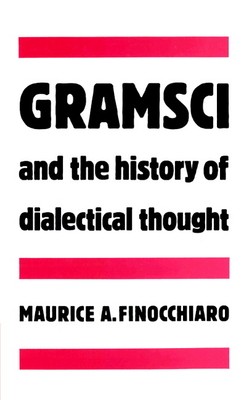
- We will send in 10–14 business days.
- Author: Maurice A Finocchiaro
- Publisher: Cambridge University Press
- Year: 2002
- Pages: 328
- ISBN-10: 0521892694
- ISBN-13: 9780521892698
- Format: 15.5 x 23.3 x 2.1 cm, minkšti viršeliai
- Language: English
- SAVE -10% with code: EXTRA
Gramsci and the History of Dialectical Thought (e-book) (used book) | bookbook.eu
Reviews
Description
This is an interpretative and evaluative study of the thought of Antonio Gramsci, the founding father of the Italian Communist Party who died in 1937 after ten years of imprisonment in Fascist jails. It proceeds by a rigorous textual analysis of his Prison Notebooks, the scattered notes he wrote during his incarceration. Professor Finocchiaro explores the nature of Gramsci's dialectical thinking, in order to show in what ways Gramsci was and was not a Marxist, as well as to illustrate correspondences with the work of Hegel, Croce, and Bukharin. The book provides a critical reappraisal of Gramsci as a thinker and of the dialectical approach as a mode of inquiry.
EXTRA 10 % discount with code: EXTRA
The promotion ends in 21d.10:30:26
The discount code is valid when purchasing from 10 €. Discounts do not stack.
- Author: Maurice A Finocchiaro
- Publisher: Cambridge University Press
- Year: 2002
- Pages: 328
- ISBN-10: 0521892694
- ISBN-13: 9780521892698
- Format: 15.5 x 23.3 x 2.1 cm, minkšti viršeliai
- Language: English English
This is an interpretative and evaluative study of the thought of Antonio Gramsci, the founding father of the Italian Communist Party who died in 1937 after ten years of imprisonment in Fascist jails. It proceeds by a rigorous textual analysis of his Prison Notebooks, the scattered notes he wrote during his incarceration. Professor Finocchiaro explores the nature of Gramsci's dialectical thinking, in order to show in what ways Gramsci was and was not a Marxist, as well as to illustrate correspondences with the work of Hegel, Croce, and Bukharin. The book provides a critical reappraisal of Gramsci as a thinker and of the dialectical approach as a mode of inquiry.


Reviews